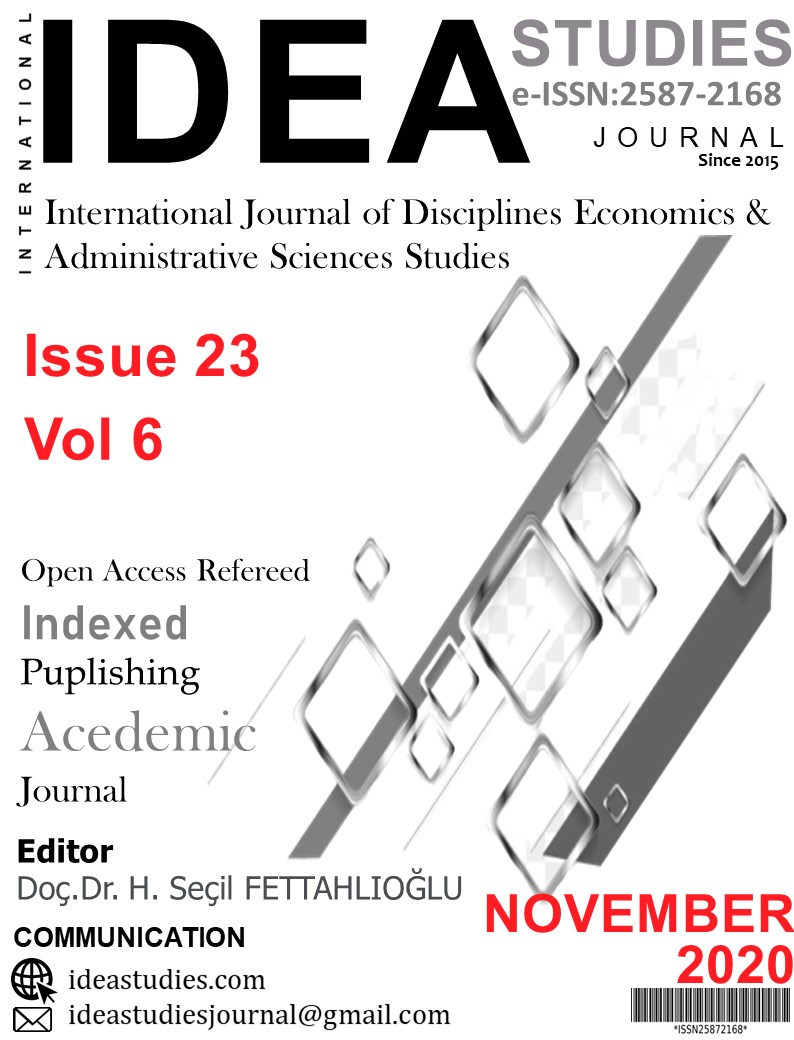Author :
Abstract
E-devlet, kamu yönetiminde ve siyasi karar alma süreçlerinde Bilgi ve İletişim Teknolojilerinin (BİT) stratejik ve koordineli kullanımını ifade eder. E-devlet ile hedeflenenler; verimlilik artışı, sürekli iyileştirme, siyasi katılım ve şeffaflıktır. Bu hedeflere ulaşmanın ön koşulu ise sağlam bir kurumsal temel ve iyi bir teknik altyapıdır. Günümüzde e-devletin etkin kullanımı gelişmiş ve gelişmekte olan ülkeler ile sınırlı olmasına karşın gelişmemiş ülkeler için de potansiyel bir gelişim fırsatı olabilmektedir. Çoğu durumda reform önündeki engeller finansal-altyapısal yetersizlikten ziyade politik düşüncelerden kaynaklanmaktadır. Oysa e-devlet siyasi-idari reform hareketleri ve ulusal kalkınma için önemli bir araçtır. Ayrıca e-devlet teknolojik faydalarının ötesinde iyi yönetişimi, sivil toplumu ve çok aktörlü etkileşimi de destekleyebilmektedir. Bu kapsamda çalışmanın amacı e-devlet kavramını incelemek ve genel önemini ortaya koymaktır. Çalışmada önce e-devlet ile yönetişim kavramları arasındaki ilişki ortaya konulmuş; sonra e-devletin farklı boyutları ve potansiyel faydaları değerlendirilmiştir.
Keywords
Abstract
E-government refers to the strategic and coordinated use of Information and Communication Technologies (ICT) in public administration and political decision making. Those targeted by e-government; productivity growth, continuous improvement, political participation and transparency. The prerequisite for achieving these goals is a sound corporate foundation and a good technical infrastructure. Although effective use of e-government is limited to developed and developing countries today, it can also be a potential development opportunity for undeveloped countries. In most cases, barriers to reform stem from political considerations rather than financial-infrastructural inadequacies. However, e-Government is an important tool for political-administrative reform movements and national development. In addition, e-Government can support good governance, civil society and multi-actor interaction beyond its technological benefits. The purpose of this study is to examine the concept of E-Government and to reveal its general importance. In the study, firstly, the relationship between E-Government and governance concepts was introduced. different dimensions and potential benefits of e-government were then evaluated.
Keywords
- World Bank, 1992, Governance and Development, Washington: The World Bank.
- World Bank, 1992, Governance and Development, Washington: The World Bank.
- UNDP, 1995, Public Sector Management, Governance, and Sustainable Human Development, New York: UNDP (Management Development and Governance Division).
- Von Haldenwang, C. (2004). Electronic government (e-government) and development. The European journal of development research, 16(2), 417-432.
- UNDP, 1997, Reconceptualising Governance, Discussion Paper 2, New York: UNDP (Management Development and Governance Division).
- OECD, 2001, Citizens as Partners: Information, Consultation and Public Participation in Policymaking, Paris: OECD.
- Weiss, T. G. (2000). Governance, good governance and global governance: conceptual and actual challenges. Third world quarterly, 21(5), 795-814.
- InfoDEV, (2020), “About infoDev A World Bank Group Program to Promote Entrepreneurship & Innovation”, https://www.infodev.org/about, Erişim Tarihi: 10.08.2020.
- Unpan, (2020), “About Unpan”, https://unpan.un.org/home/about, Erişim Tarihi: 10.08.2020.
- Ebrahim, Z., & Irani, Z. (2005). E‐government adoption: architecture and barriers. Business process management journal.
- Bellamy, C. (2009). Managing ICTs in public sector organizations. Public management and governance. London.





